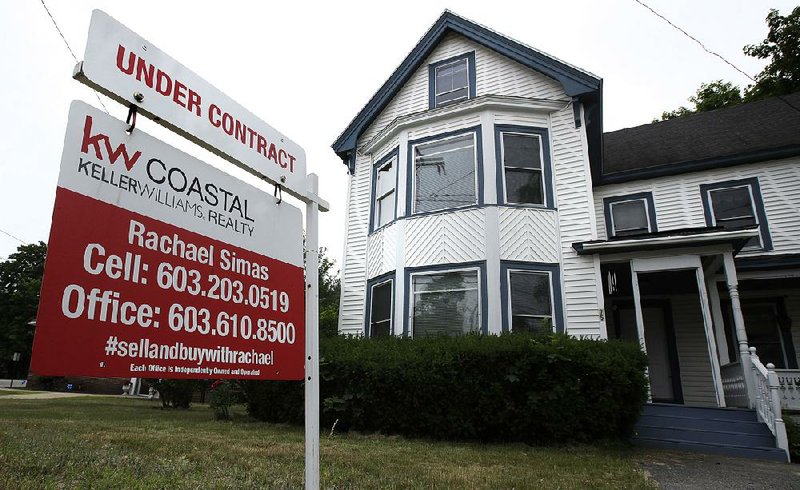WASHINGTON -- Fewer people signed contracts in October to purchase homes, as higher mortgage rates have dampened enthusiasm among would-be buyers.
The National Association of Realtors said Thursday that its pending home sales index fell 2.6 percent last month to 102.1. The index based on contract signings has tumbled 6.7 percent from a year ago.
Contract signings dropped most sharply in the West, but they also declined in the Midwest and South. The index increased in the Northeast.
The housing downturn has corresponded with a jump in mortgage rates that began last year after President Donald Trump's tax cuts led to higher budget deficits and interest rates charged on U.S. Treasury notes. Further fueling the increase in mortgage rates was a decision by the Federal Reserve to reduce the size of its balance sheet and raise a short-term rate for loans between banks.
Pending sales are a barometer of home purchases that are completed a month or two later, so the October index suggests that sales will possibly decline through December.
While the report is in line with the view that housing isn't expected to collapse, the industry may have trouble gaining traction, analysts say. Previously-released data showed new-home sales fell in October to the weakest pace since March 2016, while purchases of previously owned houses rose for the first time in seven months.
But in recent weeks buyers have jumped on the recent stability of rates, sparking an increase in applications for mortgages, Freddie Mac chief economist Sam Khater said. That means despite higher rates, "there are buyers on the fence waiting for the right time to buy," he said.
Mortgage purchase applications rose 9 percent in the week that ended Nov. 23 from a week earlier and were up 2 percent from a year earlier, according to the Mortgage Bankers Association.
Mortgage buyer Freddie Mac -- the Federal Home Loan Mortgage Corp. -- said the average rate charged for a 30-year mortgage was 4.81 percent this week, unchanged from last week but up from 3.90 percent last year.
The rate on 15-year fixed-rate loans edged up to 4.25 percent from 4.24 percent the previous week. The average rate for five-year adjustable-rate mortgages increased to 4.12 percent from 4.09 percent last week.
The refinance share of mortgage activity accounted for 37.9 percent of all applications.
"Mortgage rates were flat this week, holding steady near their lowest levels in more than a month but still up sharply from a year ago," said Aaron Terrazas, senior economist at Zillow. "Markets are usually quiet leading up to and immediately after Thanksgiving, but a return to recent volatility may be on the horizon. The coming weeks will be telling for rates and the economy overall."
Bankrate.com, which puts out a weekly mortgage rate trend index, found that half of the experts it surveyed say rates will remain relatively stable in the coming week. However, Jim Sahnger, a mortgage planner with Schaffer Mortgage, disagrees. He says rates are likely to fall.
"Recent data regarding the economy has been bond-friendly," Sahnger said. "That, coupled with comments from Fed Chair [Jerome] Powell that rates are just below neutral, should give the bond market more momentum leading into the first week of December. The bond market has been pretty tame during all the stock market volatility, and now, with oil continuing to fall, inflation in check, continued concern over tariffs and geopolitical risks looming, we may now fall back towards a 10-year in the high 2.90s next month."
Information for this article was contributed by Josh Boak of The Associated Press; by Shobhana Chandra and Chris Middleton of Bloomberg News; and by Kathy Orton of The Washington Post.
Business on 11/30/2018

